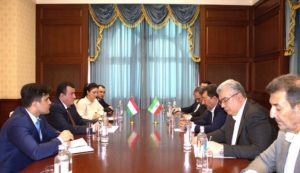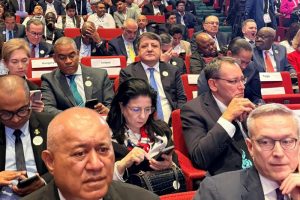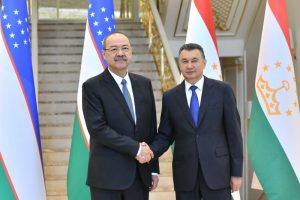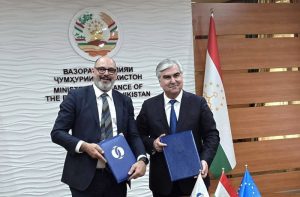Second Voluntary National Survey of Tajikistan Presented in New York
Read also

DUSHANBE, 25.07.2023 (NIAT Khovar) — On July 19, the Minister of Economic Development and Trade presented the Second Voluntary National review of Tajikistan on the theme «Green development for a bright, sustainable and inclusive future» at a high-level political forum in New York.
It was noted that Tajikistan has made significant progress in implementing the Sustainable Development Goals in 2016-2022. According to estimates, Tajikistan as a whole has fulfilled 70 percent of the SDGs and some of their indicators are more than 90 percent.
Despite the events taking place in the global economy and the negative impact of external factors, especially the aggravation of geopolitical clashes, sanctions, trade conflicts, the spread of infectious diseases, as well as the effects of climate change, as a result of the effective implementation of economic reforms, government strategies and programs, anti-crisis measures over the past five years, the development of Tajikistan’s economy has been provided annually at an average level of 7.3 percent, the average income of the population increased 2.1 times, the average salary — 1.5 times and the pension amount — 1.3 times.
It was emphasized that Tajikistan is the source of more than 60% of water resources in Central Asia, 98% of electricity is produced at hydroelectric power plants. Currently, Tajikistan ranks sixth in the world in the use of “green» energy.” With the creation and full start of the Rogun HPP, Tajikistan will take the fourth place in the world in the production of «green» energy.” Also, Tajikistan is among the countries with a small share of greenhouse gas emissions.
It was reported that during the period of independence, more than 2,000 MW of additional electrical capacity was put into operation, which provided access to electricity to the rural population by up to 98% in 2022 and reduced energy shortages. According to the global energy assessment of World Energy Trillema, Tajikistan has entered the TOP10 countries in energy security.
During the period of independence, 2,400 km of roads, 326 bridges, 6 automobile tunnels, and 219 km of railways were built and put into operation to ensure accelerated industrialization and development of the country’s infrastructure.











 Financing Issues Related to the Continued Construction of the Rogun HPP Discussed in Dushanbe
Financing Issues Related to the Continued Construction of the Rogun HPP Discussed in Dushanbe Implementation of Investment Projects and Attraction of Asian Development Bank Funds to Tajikistan’s Economy Discussed in Dushanbe
Implementation of Investment Projects and Attraction of Asian Development Bank Funds to Tajikistan’s Economy Discussed in Dushanbe Tajikistan — Iran Expand Economic and Trade Cooperation
Tajikistan — Iran Expand Economic and Trade Cooperation Tajik Delegation Participates in the Global India AI Impact Summit 2026
Tajik Delegation Participates in the Global India AI Impact Summit 2026 Tajikistan and Iran Discuss Direct Investment Opportunities in Tajik Economy
Tajikistan and Iran Discuss Direct Investment Opportunities in Tajik Economy Tajikistan and Iran Discuss Prospects for Economic and Trade Cooperation
Tajikistan and Iran Discuss Prospects for Economic and Trade Cooperation Tajikistan–Uzbekistan Commission Meeting Focuses on Expanding Economic Cooperation
Tajikistan–Uzbekistan Commission Meeting Focuses on Expanding Economic Cooperation Tajikistan, EBRD sign loan and grant agreements for energy loss reduction project
Tajikistan, EBRD sign loan and grant agreements for energy loss reduction project Tajikistan to Welcome Global Investors at “Dushanbe Invest-2025” Forum
Tajikistan to Welcome Global Investors at “Dushanbe Invest-2025” Forum Tajikistan’s Transport Minister Highlights Importance of Joint Projects in Seoul
Tajikistan’s Transport Minister Highlights Importance of Joint Projects in Seoul Tajik–Swiss Business Forum Held in Dushanbe
Tajik–Swiss Business Forum Held in Dushanbe Direct Air Connectivity Established Between Xi’an and Dushanbe
Direct Air Connectivity Established Between Xi’an and Dushanbe














